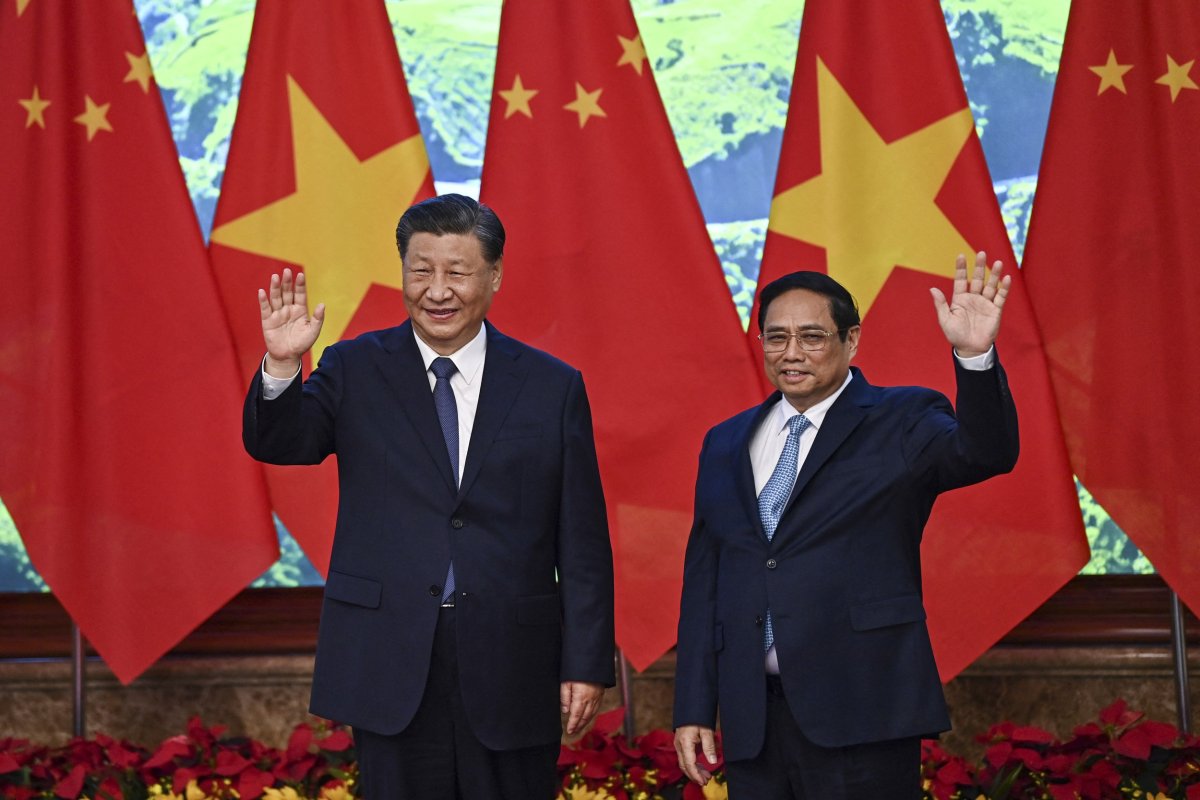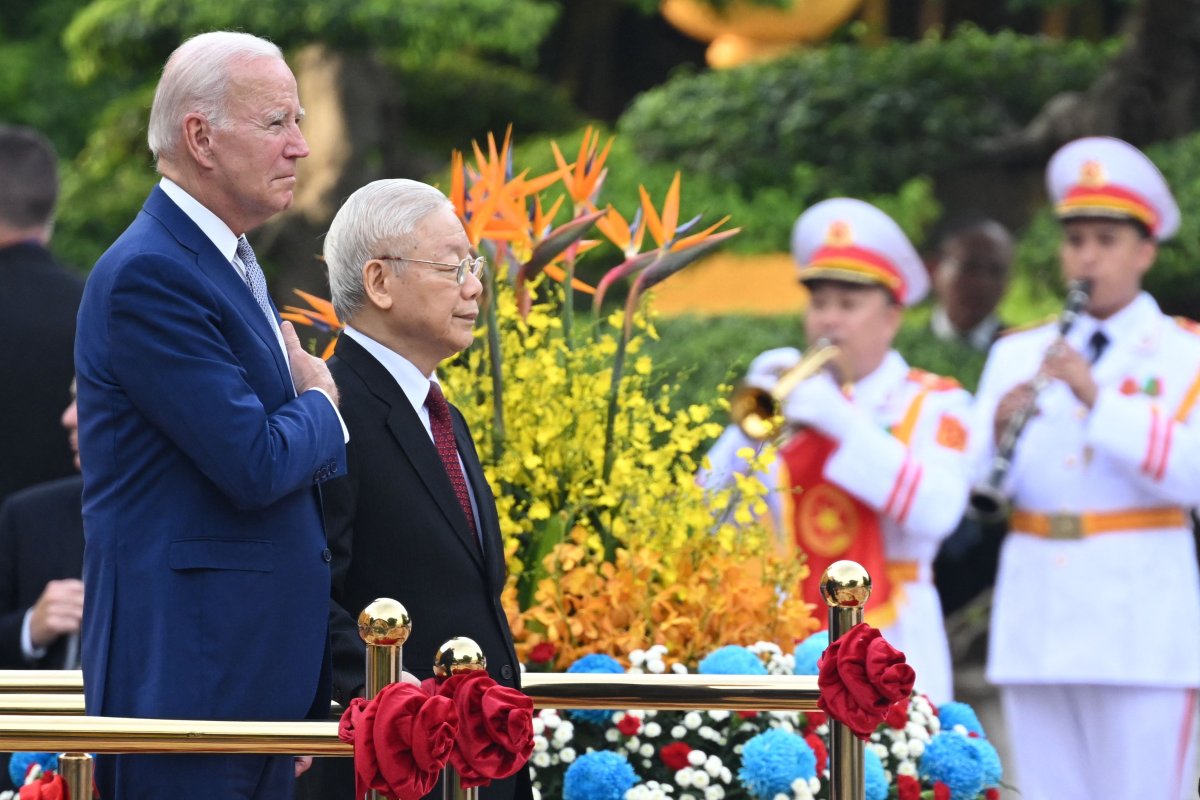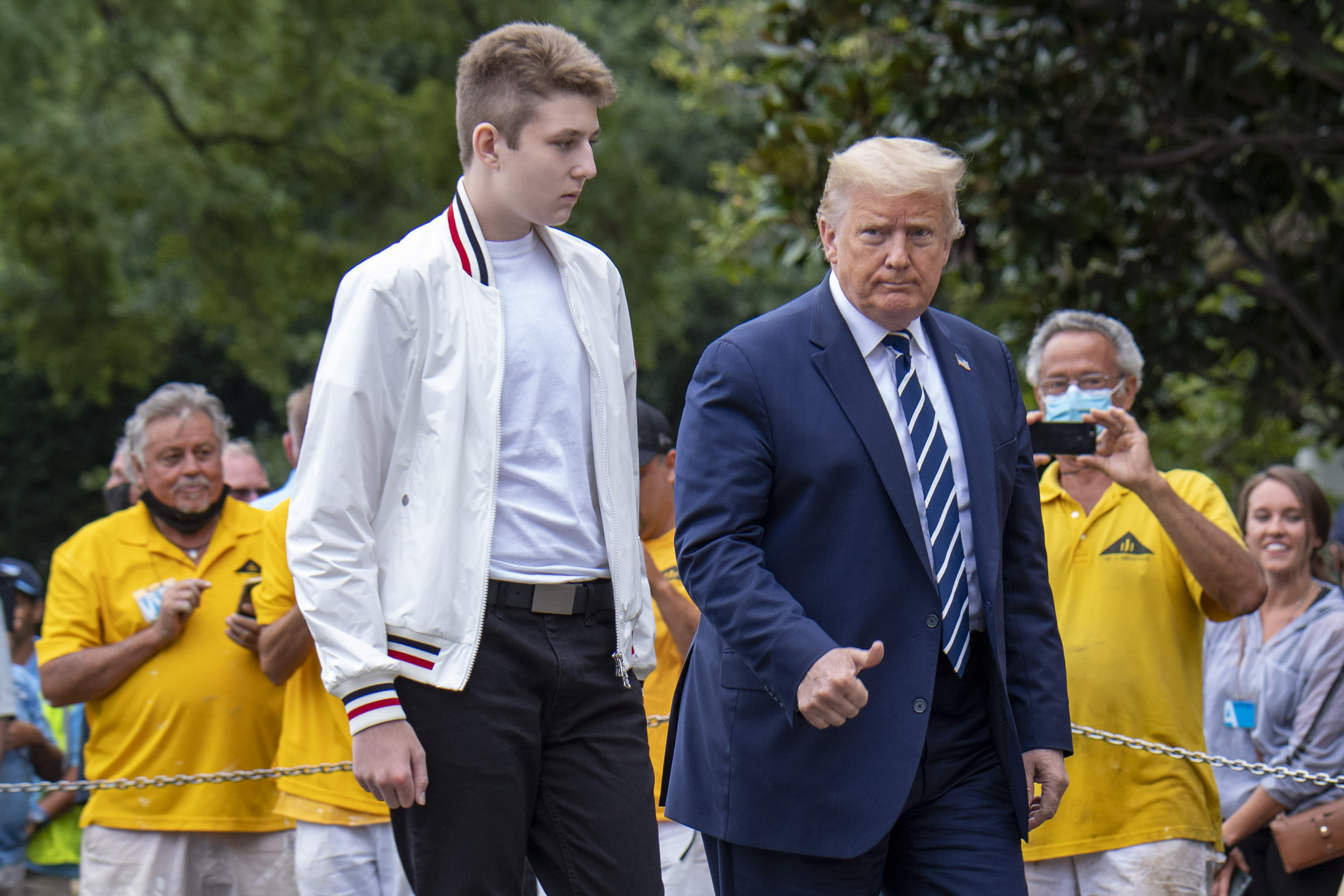Chinese leader Xi Jinping wants to elevate ties with neighboring Vietnam after U.S. President Joe Biden's recent visit to Hanoi turned the country into something of a bellwether of the regional power balance.
Beijing, whose Communist leadership has had a long affinity with the ruling Communist Party of Vietnam, is seeking more common ground with Hanoi—ideologically and geopolitically—to counter the renewed influence of the United States and its allies in the region.
During his two-day official visit scheduled to conclude on Wednesday, Xi proposed a "community of common destiny." The phrase, derived from a "community of common destiny for mankind," is a favorite geopolitical proverb of China's president, and now a topic of diplomatic contention in Vietnam because of its implications.
First introduced into official Communist Party discourse by China's former leader Hu Jintao in 2012, the phrase initially was a reference to the eventual incorporation of self-ruling Taiwan. Under Xi, who assumed power that November, it quickly gained broader relevance to global affairs.
The term is seen by some analysts as signaling Beijing's ultimate goal of ending the U.S.-led alliance system in Asia, and the emergence of a China-led order in its place. Its deeper significance has caused some apprehension among observers.

Vietnam, in particular, has insisted on using "future" instead of "destiny" in the phrase, reflecting its efforts to maintain a balanced relationship with Beijing.
Viet Hoang, a lecturer at Ho Chi Minh City University of Law, said the proverb remained "a vague concept."
He told Voice of America on Monday: "Vietnam has stated clearly...it does not take sides. Vietnam has to think hard about the 'community of common destiny,' because participating in it may be viewed as taking sides or may make other countries think that Vietnam is taking sides."
Despite lingering concerns, the concept has been officially embraced in bilateral relations.
"The two sides have announced the new positioning of relations between the two parties and countries and agreed to build a China-Vietnam community with a shared future that carries strategic significance on the basis of deepening the comprehensive strategic cooperative partnership between the two sides," China's official news service Xinhua said on Wednesday.
A day earlier, Vietnam's state-run Vietnam News Agency included a brief reference to Xi's geopolitical phrase in its reporting.
"China community with a shared future carries strategic significance, and pledged to make efforts for the happiness of the two countries' people and for peace and progress of humanity in line with the U.N. Charter and international laws," it said.
Hanoi's public embrace of Beijing's ideological outlook for the region was a minor coup for Xi, who has seen its fiercest geopolitical rivals make meaningful inroads in Vietnam in recent months.
In Hanoi in September, Biden described the U.S. and Vietnam as "critical partners at what I would argue is a very critical time." He and Vietnam's Communist Party chief Nguyen Phu Trong agreed to elevate their countries' ties to the highest level—a comprehensive strategic partnership.
And then late last month, Prime Minister Kishida Fumio of Japan visited Vietnam and secured the same level of bilateral commitment, which was previously reserved for Vietnam's relations with China and Russia.
Other subject-matter experts believed Vietnam's partial adoption of Xi's vision was Hanoi's way of avoiding a repeat of its bitter history in the Sino-Vietnamese War of 1979.
"The 'community of common destiny' will not prevent a future China-Vietnam war, but it will be strong enough for both countries to manage their differences to avoid a total breakdown of relationship, as in 1978," Vu Khang, a doctoral candidate at Boston College, wrote in The Diplomat magazine on Wednesday.

Xi was accompanied by other top CCP leaders, including chief of staff Cai Qi, who held separate meetings with their Vietnamese counterparts. In Hanoi, China's president leaned heavily on the two countries' socialist links, according to Xinhua.
"China and Vietnam have the same political systems, similar ideals and beliefs, and related futures and destinies. Bilateral relations occupy a special position in the external relations of their respective parties and countries," Xi was quoted as saying.
The depth of the partnership was further evidenced by the signing of 36 agreements between the countries' leaders, in security, railway development and other fields, according to VN Express, a Vietnamese online newspaper. The deals were illustrative of Hanoi's ongoing U.S.-China balancing act.
China's Xi and his opposite number Trong, also discussed tensions in the South China Sea, which Vietnam calls the East Sea, where both governments contest multiple islands and reefs, chiefly in the Paracel Islands.
China and Vietnam "should be vigilant against and oppose any attempt to mess up the Asia-Pacific," Xi said, according to Xinhua, pointing to Beijing's preference to resolve territorial disputes at a bilateral rather than multilateral level.
The official Vietnam News Agency said: "Touching on the East Sea issue, they engaged in sincere and frank in-depth exchanges, laying stress on the necessity to better control and actively settle disagreements at sea, as well as maintain peace and stability in the East Sea and the region."
Uncommon Knowledge
Newsweek is committed to challenging conventional wisdom and finding connections in the search for common ground.
Newsweek is committed to challenging conventional wisdom and finding connections in the search for common ground.
About the writer
Aadil Brar is a reporter for Newsweek based in Taipei, Taiwan. He covers international security, U.S.-China relations, and East Asian ... Read more
To read how Newsweek uses AI as a newsroom tool, Click here.






